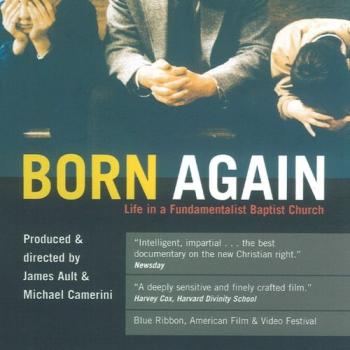A Crucial but Much Ignored (or Misunderstood) Distinction for Theology: “Mystery” versus “Contradiction”
I have been teaching Christian theology to all kinds of people—mostly students but also church members—for thirty-five years now. One issue I constantly face is well-intentioned but misguided Christians thinking that Christian belief requires embrace of logical contradictions. They almost always call these “mysteries” and think it is spiritual to believe what is illogical. Many Christians, and others, confuse what is impossible for us to do and to comprehend with what is illogical.
Here are some examples: “The resurrection of Jesus is illogical, but we must believe it,” “The Trinity is a contradiction—that God is ‘one in three and three in one,’ but we must believe it.” You get the idea.
These well-meaning Christians do not realize they are undermining Christianity’s credibility and opening the door to all kinds of absurdities. They will argue on the one hand that belief in the resurrection and the Trinity is illogical, requiring sacrifice of the intellect, then turn around and criticize a non-Christian worldview, religion or belief system for being illogical.
Emil Brunner, a leading 20the century Swiss theologian, greatly influenced by Søren Kierkegaard, rightly said in Dogmatics I: The Christian Doctrine of God that Christian belief is intelligible belief, not nonsense. He rejected Christian appeals to illogic or “special logic.” Logic is logic, he said quite rightly. “[Theology’s] statements must not only not contradict the truth of revelation, but also they must not contradict one another, nor must they be in contradiction to reality; that is, they must not be of such a character that in order to affirm them, actual facts have to be denied or distorted.” (Ch. 11: “The Concept and Task of Dogmatics) Also, “There is no reason to doubt that mathematical truths and the laws of logic are also recognized by God as valid, not indeed that they belong to a sphere which is above God, but because they are the overflow of the divine thought and will.” (Ch. 21: “The Wisdom and the Glory of God)
No doubt Kierkegaard would chastise his 20th century disciple and, at this point, anyway, Brunner departs from Kierkegaard (at least from of the “Melancholy Dane’s” thoughts). However, Brunner is completely right and otherwise, if he were wrong, Christian belief would be esoteric, not reasonable and intelligible.
The problem is that many spiritually-minded but confused Christians somehow think reason, logic, is something bad—especially when used to attempt to understand revelation (God’s Word). And they confuse “mystery” with “unintelligibility.” They eagerly embrace and appeal to something “in God” that we must believe that not only transcends logic but breaks it. The result is often a belief system that amounts to unintelligible nonsense. And many are proud of that as a sign of God’s transcendence and their bold spirituality.
I once heard a pastor end a sermon with this claim: “The Christian’s attitude toward the secular world should be ‘Don’t confuse me with the facts; my mind is already made up’.” No wonder so many Christian young people surrender their Christianity soon after entering college or university and coming under pressure to think logically and come to grips with reality.
Now let’s do some clearing up of concepts. “Mystery” is one of two things. First, what is unknown is a mystery until it is discovered or revealed. Second, what is beyond comprehension is a mystery. “Contradiction” is when two or more propositions are believed to be true but believing them to be true violates the law of non-contradiction that “A” cannot be “not A.”
The doctrine of the Trinity is a mystery but not a contradiction. It is not that God is one person and three persons; that would be a contradiction. Nor is it that God is one God and three Gods; that would be a contradiction. It is that in God three distinct (not separate) persons share one nature, substance or essence. That is a mystery because in our world we find no exact parallel to that and we cannot create it or fully comprehend how it can be. But there is no logical contradiction involved in affirming it.
The resurrection of Jesus Christ is a mystery but not a contradiction. It is that God transformed the body of Christ giving it new life fit for heaven. Just because science cannot duplicate it does not mean it is “illogical.” There is no logical contradiction in affirming it. However, we find no exact analogy to it in our world and cannot fully comprehend how it was done because it can only be done by God.
Now, of course, there are people who will place “mystery” and “contradiction” on the same level, but they are simply wrong. Even science acknowledges mysteries in nature even as it avoids contradictions. That light, for example, exhibits characteristics of particles and waves is not a contradiction even though how it can be both is a mystery (at least so far).
I would dare to speculate, based on my own teaching experiences over thirty-five years, that most devout American Christians have been led to believe by someone, or have simply arrived at the belief without any urging, that Christian belief requires sacrifice of the intellect, that it requires believing in the impossible in the sense of the illogical. Very few are in the least aware that myriads of Christian thinkers over the centuries have worked out the apparent contradictions, if any, in revelation and that basic Christian orthodoxy, however problematic for “eyes without faith,” contains no inherent logical contradictions.
*Note to potential commenters: This particular post is for Christians; if you are not a Christian you may ask a question for clarification, but please do not use it as an opportunity to attack Christianity or Christians. This blog is for dialogue; if dialogue (understanding) is not your intention, please do not waste your time composing a comment and attempting to post it here. It will not be approved. That also goes for Christians; respect the purpose of this blog, please. Hostile comments, including questions with hostile intent, will not be approved. This blog is not a “discussion board” where anything and everything can be said. It exists for the purpose of dialogue/understanding only. If that is not your purpose, read but don’t bother attempting to comment as your comment will be deleted.















